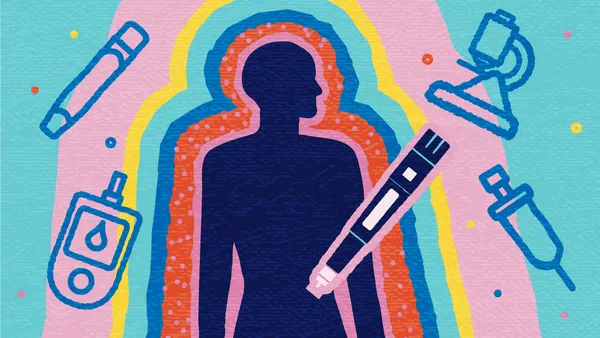Communications Larry Wright, Ph.D. VP, Account Services and Business Development The molecular science involved in creating an agent, as well as the biological rationale for the agent’s use intrigues that “little bit of biologist” in each and every healthcare professional. Let the Science Tell the Story When it comes to new drug development, it’s often said that the industry is in the midst of the “molecular revolution” or the “era of targeted therapy.” According to the Pharmaceutical Research and Manufacturers of America, more than 324 biotechnology medicines are currently in development for about 150 diseases. These include 154 medicines for cancer, 43 for infectious diseases, 26 for autoimmune diseases, and 17 for AIDS/HIV and related conditions. Many of these compounds have been developed using molecular biology techniques, and include classes such as recombinant proteins, recombinant monoclonal antibodies, fusion antibodies, antisense drugs, and therapeutic vaccines. The development of many of these agents is the result of efforts to understand the molecular pathways involved in the pathophysiology of disease. For example, researchers today have a greater understanding of viral-host interactions and immune responses. Furthermore, the sequencing of the human genome has revolutionized the understanding of human biological pathways related to the fields of neuroscience, endocrine systems, and cellular growth and development. Marketing the Science The science that is driving the development of new agents has only been around for a miniscule period of time in the history of medicine — relative to Hippocrates, or for that matter, even penicillin — and each new agent has its own special story to tell. Although some skeptics might say healthcare professionals care only that an agent is safe and produces a specific clinical result, there is merit in the belief that the scientific story behind each drug also is important to today’s physicians, and therefore, of great value as a marketing tool. The explanation of the molecular science involved in creating an agent, as well as the biological rationale for the agent’s use intrigues that “little bit of biologist” in each and every healthcare professional. Telling the Story The most common arguments against telling the scientific story are that the molecular science associated with drug development is complex, or that the biological pathway(s) in which the drug acts or possibly acts may be confusing or even unknown. But if a drug does have an intriguing scientific story, where do marketers begin to creatively weave the scientific story into the medical marketing effort? To start with, there should be a strong publication plan initiated early in the drug-development process that uses the compound’s unique scientific platform as a means to differentiate it early in its life. When developing the brand names for compounds, companies need to charge their naming partners with telling the scientific stories in a compelling and memorable brand-name way. An excellent example of this is Herceptin, a compound that selectively binds to the HER2 receptor in certain breast cancer patients. Finally, as product launch approaches, educate potential prescribers on the science behind the soon-to-be available agent. If appropriate, also disseminate the story via consumer public relations and publications. Science editors for newspapers and consumer magazines often are looking for new developments and scientific content for their readers. Most importantly, marketers need to identify and engage an appropriate agency partner, with an experienced scientific team, that not only understands the science and can interact with the scientific and clinical teams, but also has the skills to tell a compelling scientific story that is accessible to all audiences. If the scientific story is incorporated into every aspect of the communications strategy and tactical execution, healthcare professionals will not only know that the product works, but also understand its science. DVC HealthCare Inc., with offices in Yardley, Pa., and Irvine, Calif., combines scientific expertise with strategic and creative marketing solutions to improve the speed to market, accelerate brand uptake, and ensure brand loyalty. For more information, visit dvchealthcare.com. September 2005 VIEW on Marketing
An article from


Let the Science Tell the Story
Filed Under:
Commercialization









